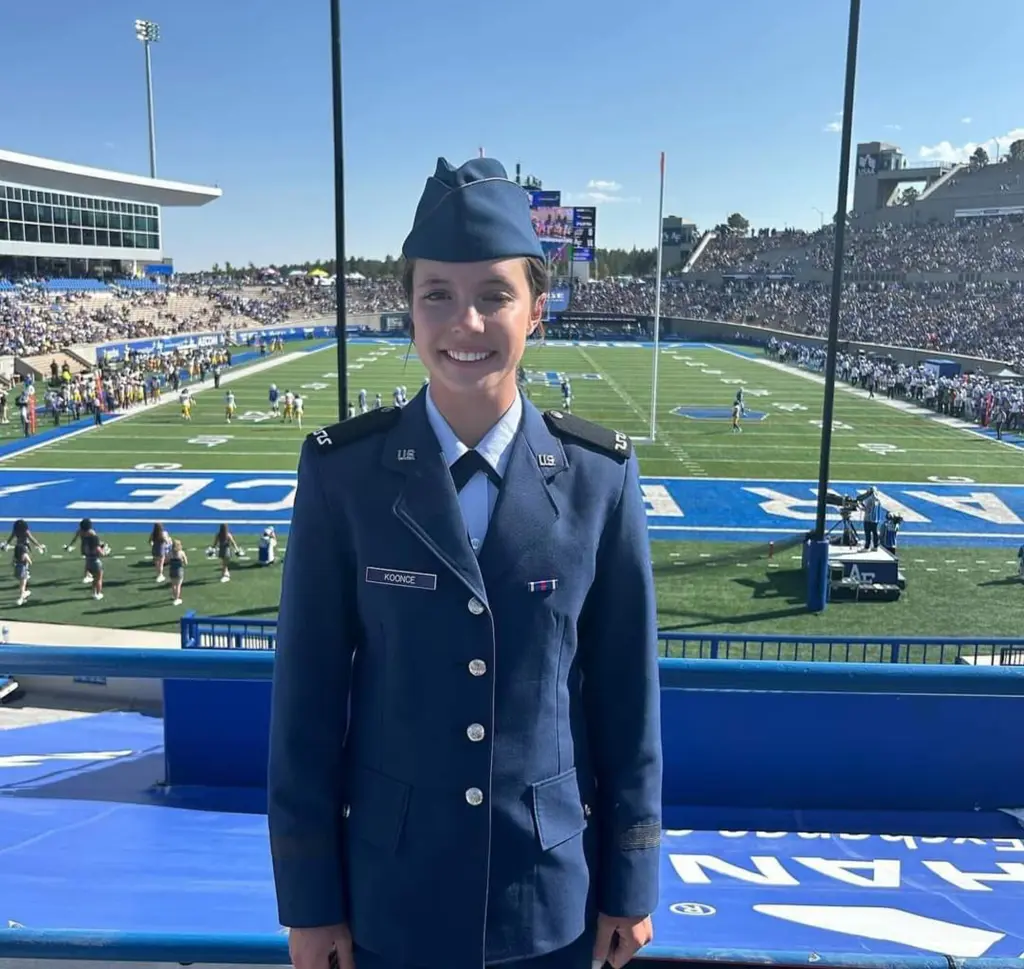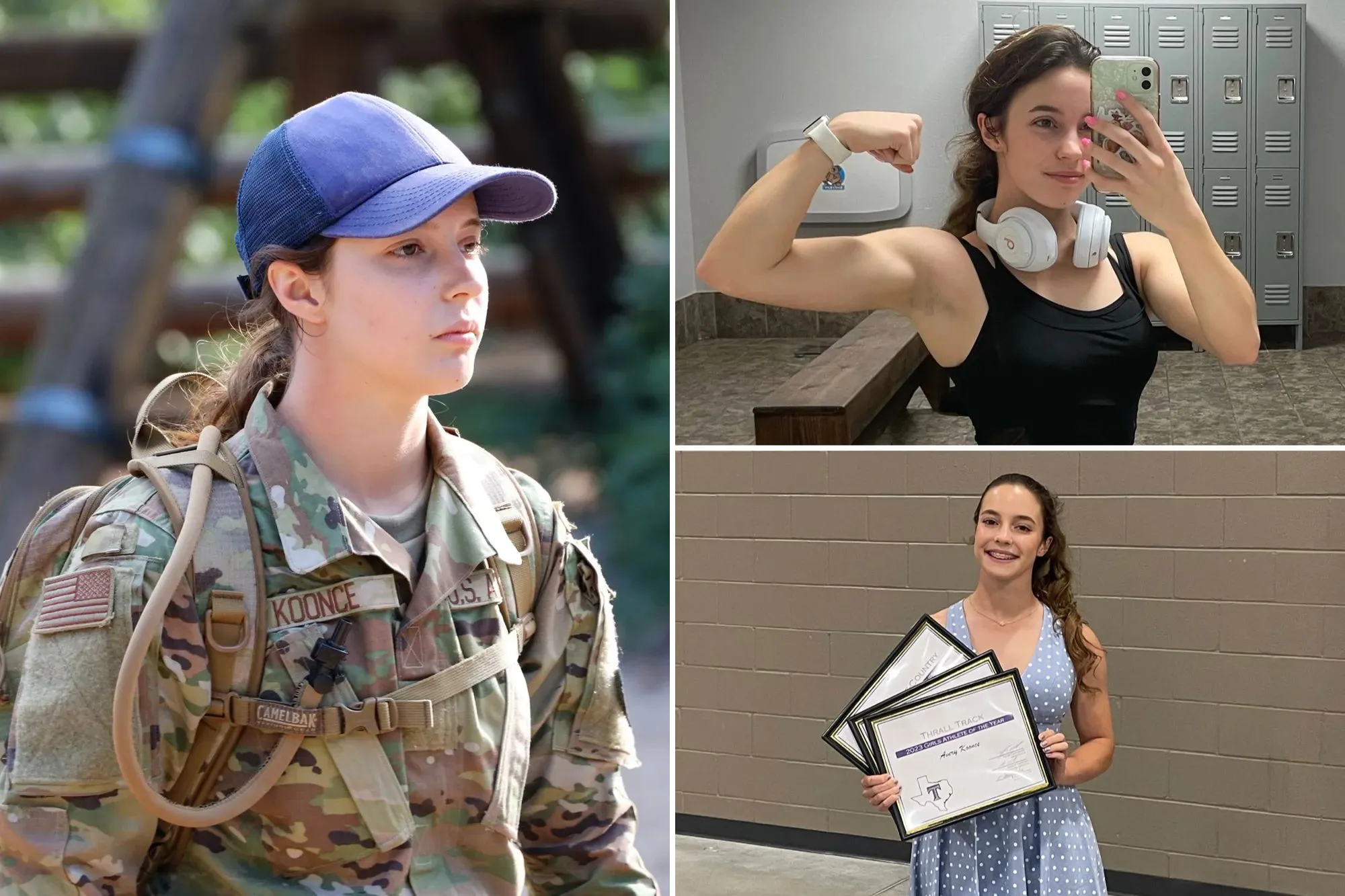Air Force Academy student found dead in her dorm at 19; Now the cause of death has finally been uncovered…
Avery Koonce ran like the wind. On the track, she was nearly untouchable—breaking records, defying expectations, and chasing down dreams with the kind of determination that made people stop and watch. But her greatest power wasn’t her speed. It was her light—vibrant, magnetic, and full of purpose.
A freshman at the U.S. Air Force Academy and a newly minted member of its track and field team, Avery was just beginning a life of service, speed, and science. Her goal: to become a physical therapist for Air Force pilots. Her plan: to give everything she had. And for a while, she did.
But on the morning of September 4, 2024, something unthinkable happened.
Inside her dorm at the Academy in Colorado Springs, Avery was found unresponsive. Emergency responders tried to bring her back. Her classmates watched in horror. But it was too late. At just 19, Avery Koonce—daughter, sister, teammate, dreamer—was gone.

What Really Happened in That Room?
For days, the questions hung in the air like smoke: How could someone so healthy and vibrant die so suddenly? What had taken her? Why didn’t anyone see it coming?
Weeks later, the answer emerged from the coroner’s report: Paeniclostridium sordellii sepsis — a rare, fast-moving bacterial infection that struck when Avery was already weakened by viral pneumonia.
In plain terms: a respiratory virus, likely from a simple seasonal cold, had laid the groundwork. Then a microscopic invader—rare, deadly, and almost undetectable—entered the stage. It triggered a toxic shock-like syndrome, rapidly flooding her bloodstream, overwhelming her organs. And by the time anyone realized the danger, it was already too late.
“She had been coughing,” friends said. “But no one thought it was life-threatening.”
And that’s the heartbreak. This may have been preventable. Some medical experts believe that earlier detection and antibiotic treatment might have saved her.
The Girl Behind the Headlines
Avery wasn’t just another promising cadet. She was a multi-talented powerhouse. At Thrall High School in Texas, she was a sprinter, a cheerleader, a powerlifter, a cross-country runner, a band member, and an academic standout. She was also the kind of person who cheered louder for others than for herself.

She was planning to major in biology. Her dream? Helping Air Force pilots recover and return to the sky. Her work ethic, even as a freshman, had already begun to earn her admiration from peers and praise from leadership.
And that admiration became visible on September 12, when over 100 of her fellow cadets made the long journey from Colorado to Avery’s hometown in Texas. There, at Tiger Stadium, beneath the lights she once ran under, they honored her life in a way that words never could.
“Our Daughter Was a Bright Light in This Broken World”
In a deeply moving statement, Avery’s family shared their grief—and their gratitude:
“Avery was not a perfect person, but she was a perfect daughter. Our lives will forever be diminished because of her absence… Loving on her brothers and learning how to live with Avery’s loss is our only focus right now.”
Lt. Gen. Tony Bauernfeind, Superintendent of the Academy, echoed the sentiment:
“We lost an incredible teammate. Avery made an impact in every space she entered—her squadron, her classroom, and her team.”

A Story of Potential—and a Warning for Us All
Avery’s story is a reminder that life can shift in the blink of an eye. That even the strongest bodies and brightest futures are vulnerable to silent, hidden dangers. And that the people we pass every day—smiling, striving, pushing through a cough or a cold—may be fighting more than we know.
Her death leaves behind devastation. But it also leaves behind a legacy: of grit, grace, and a fire that burned brightly, even for a short time.
Avery didn’t get to finish her race.
But she ran with everything she had.
And that, in the end, is what people will remember.

